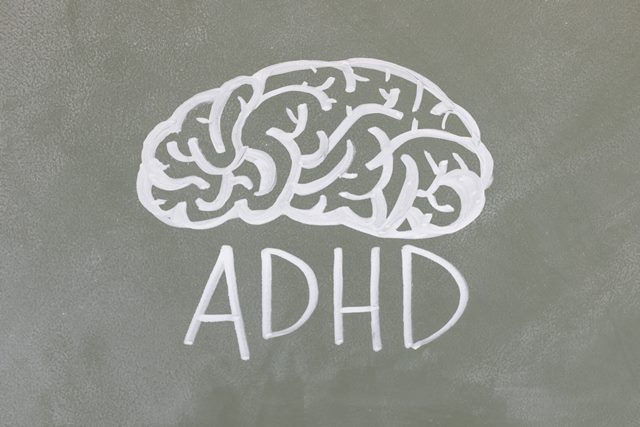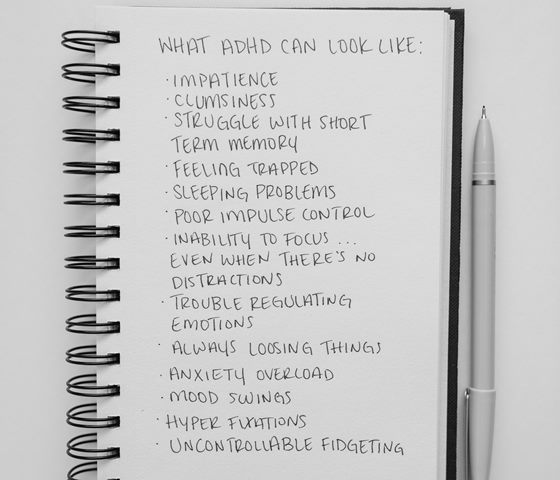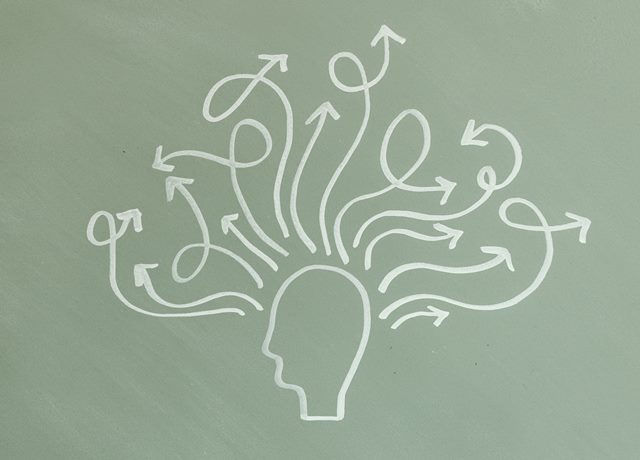Last Updated on February 4, 2023
Attention-Deficit/Hyperactivity Disorder (ADHD) is a complex and often misunderstood condition affecting millions of individuals worldwide. It can make everyday life a constant battle of distractions, impulsiveness, and restlessness. But the good news is, with the right understanding, tools, and support, people living with ADHD can thrive and lead fulfilling lives.
From inattention to hyperactivity, ADHD symptoms can vary from person to person. Understanding these symptoms is key to proper diagnosis and treatment.
We will delve into the most common symptoms and help you identify if you or a loved one may be affected by ADHD. With the right knowledge and tools, individuals with ADHD can achieve their full potential and live life to the fullest!

What Is Attention-Deficit/Hyperactivity Disorder (ADHD)?
Attention-Deficit/Hyperactivity Disorder (ADHD) is a neurodevelopmental disorder that can cause significant challenges in daily life and make it difficult to focus and complete tasks.
Despite being one of the most common childhood disorders, ADHD remains poorly understood and often misdiagnosed, leading to confusion and stigma for those affected.
ADHD is characterized by a persistent pattern of inattention and/or hyperactivity-impulsiveness that interferes with daily functioning. The symptoms of ADHD typically appear before the age of 12 and continue into adulthood for many individuals.

People with ADHD may have difficulty paying attention and following through on tasks. They may be easily distracted. They may also be impulsive, acting without thinking through the consequences of their actions. These individuals will be hyperactive, constantly fidgeting, and sometimes unable to sit still.
ADHD is not laziness or a lack of discipline. It is a real medical condition that affects the brain and significantly impacts daily life.
While some individuals with ADHD may be able to manage their symptoms independently, others may require medical treatment and support to help them lead productive lives.
However, current research suggests that a combination of genetic and environmental factors may contribute to the development of ADHD.
Read: What Does Bipolar Disorder Mean?
Symptoms of Attention-Deficit/Hyperactivity Disorder (ADHD)
Understanding the symptoms of ADHD is crucial in receiving an accurate diagnosis and effective treatment. This means you need to have substantial knowledge of the symptoms for easy diagnosis. The following are the symptoms to look out for:
Inattention
Inattention is one of the hallmark symptoms of ADHD. Individuals with ADHD may have difficulty focusing on tasks, completing work, and following through on instructions.

They may also be easily distracted by sights, sounds, and thoughts, making it challenging to pay attention and stay focused.
Impulsiveness
Impulsiveness is another common symptom of ADHD. Individuals with ADHD may act without thinking through the consequences of their actions, leading to impulsive decisions and behavior.
They may interrupt others, blurt out answers, or act before thinking through a situation.
Hyperactivity
People suffering from ADHD may be in constant motion, fidgeting, tapping their feet, or unable to sit still. They may also be energetic and have difficulty settling down, leading to constant movement and restlessness.
However, ADHD symptoms can vary from person to person. Some individuals may experience primarily inattentiveness, while others may have a mixture of inattentiveness, impulsiveness, and hyperactivity.
Additionally, some individuals with ADHD may only experience symptoms in specific settings, such as school or work, while others may experience symptoms throughout their daily life.

Read: The Meaning and Causes of Schizophrenia
Causes of Attention-Deficit/Hyperactivity Disorder (ADHD)
One of the most widely accepted causes of Attention-Deficit/Hyperactivity Disorder is genetics. Research on Attention-Deficit/Hyperactivity Disorder has shown that the condition runs in families and is likely influenced by multiple genes.
Children with a parent or sibling with ADHD are more likely to develop the condition. Additionally, studies have found that identical twins are more likely to have ADHD than fraternal twins, suggesting a genetic link.
Exposure to environmental toxins during pregnancy or early childhood is another factor that may contribute to the development of ADHD. For example, pregnancy exposure to lead, tobacco smoke, alcohol, and other substances have been linked to an increased risk of developing ADHD.
Stressful life events, such as poverty, neglect, abuse, or exposure to violence, may also contribute to the development of ADHD. This is because these events can cause disruptions in the brain’s development and increase the risk of developing ADHD.
Lastly, brain injuries, such as a head injury, stroke, or infection, can lead to ADHD in people. These events can damage the brain and alter its structure and function, leading to symptoms of ADHD.
Treatment of Attention-Deficit/Hyperactivity Disorder (ADHD)
While there is no cure for ADHD, with the right treatment, individuals with this condition can lead fulfilling lives and manage their symptoms effectively.
Following are some of the treatment methods to manage ADHD and live a fulfilling life:
Medication
One of the most commonly used treatments for ADHD is medication. Stimulant medications, such as Ritalin and Adderall, are the most commonly prescribed medications for ADHD.

These medications increase the levels of neurotransmitters, such as dopamine and norepinephrine, in the brain. Increasing these can help improve attention, reduce impulsiveness, and decrease hyperactivity.
Behavioral Therapy
This type of therapy focuses on teaching individuals with Attention-Deficit/Hyperactivity Disorder the skills to manage their symptoms. These skills include organization, time management, and impulse control.

Behavioral therapy can also help individuals with ADHD improve their relationships and performance in public, school, or work.
Parent Training and Education
Parent training and education are also essential components of treatment for children with ADHD. This therapy focuses on educating parents about ADHD and providing them with strategies to support their child’s development and improve their behavior.
In addition to these treatments, individuals with ADHD can benefit from lifestyle changes to help them manage their symptoms.

Regular exercise, a healthy diet, and adequate sleep are all important components of a healthy lifestyle that can help improve focus while decreasing impulsiveness and hyperactivity.
Read: What is Post-Traumatic Stress Disorder (PTSD)?
Diagnosis of Attention-Deficit/Hyperactivity Disorder (ADHD)
The first step in diagnosing ADHD is a comprehensive evaluation by a healthcare professional. This evaluation usually includes a thorough medical history, a physical examination, and a review of symptoms.
During the evaluation, the healthcare professional will ask questions about the patient’s behavior, academic and work performance, and social relationships. This information can help determine if the individual’s symptoms are consistent with ADHD.
The next step in diagnosing ADHD is to assess whether the individual meets the criteria outlined in the Diagnostic and Statistical Manual of Mental Disorders (DSM-5). This is the standard classification system used by mental health professionals.
To be diagnosed with ADHD, an individual must have six or more symptoms of inattention and/or hyperactivity-impulsivity for at least six months to a degree that is inconsistent with their developmental level.
These symptoms must also cause significant impairment in two or more areas of their life, such as school, work, or relationships.
It is also important to consider other possible causes of symptoms, such as sleep disorders, anxiety, or depression, as these conditions can mimic the symptoms of Attention-Deficit/Hyperactivity Disorder. This is why a comprehensive evaluation by a qualified healthcare professional can help to differentiate ADHD from other conditions and ensure that an accurate diagnosis is made.

Importance of Attention-Deficit/Hyperactivity Disorder (ADHD) Diagnosis
Why is it important to properly diagnose ADHD?
Improving Quality of Life
A proper ADHD diagnosis is the first step toward improving the quality of life for individuals with this condition. With the right treatment and support, individuals with ADHD can lead fulfilling and productive lives, free from the negative effects of their symptoms.
Accurate Treatment
Without a proper diagnosis, individuals with ADHD may receive inadequate or incorrect treatment. This can lead to ineffective therapies or even harmful medications, making their condition worse instead of better.
Proper diagnosis ensures that individuals receive the right treatment and support to manage their symptoms effectively.
Avoiding Misdiagnosis
ADHD can often be misdiagnosed as other conditions, such as anxiety or depression, leading to the inappropriate treatment of symptoms.
A proper ADHD diagnosis can help to differentiate between ADHD and other conditions and ensure that individuals receive the correct treatment.
Reducing Stigma
The stigma surrounding ADHD often leads to individuals being mislabeled as lazy or unmotivated. A proper diagnosis helps to dispel these misconceptions and reinforces the understanding that ADHD is a real and treatable medical condition.

Improved Educational and Career Outcomes
Children with ADHD often struggle in school, and adults with ADHD may have difficulties in the workplace. A proper diagnosis can provide individuals with the support and accommodations they need to succeed in these areas.
Ultimately, proper ADHD diagnosis is crucial for individuals with ADHD. It allows for proper treatment and support, improves the quality of life, reduces stigma, and improves educational and career outcomes.
If you suspect that you or someone you know may have ADHD, it is important to seek a professional evaluation to ensure proper diagnosis and treatment.
Before you go…
Hey, thank you for reading this blog to the end. I hope it was helpful. Let me tell you a little bit about Nicholas Idoko Technologies. We help businesses and companies build an online presence by developing web, mobile, desktop, and blockchain applications.
We also help aspiring software developers and programmers learn the skills they need to have a successful career. Take your first step to becoming a programming boss by joining our Learn To Code academy today!
Be sure to contact us if you need more information or have any questions! We are readily available.











